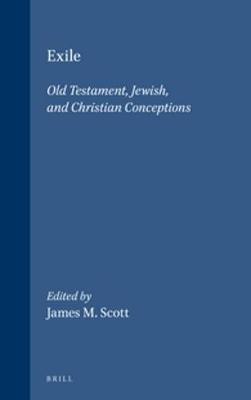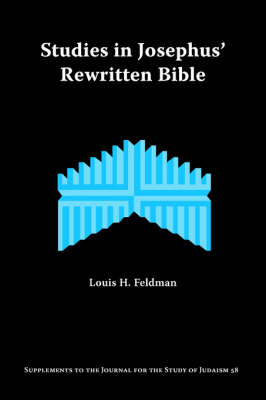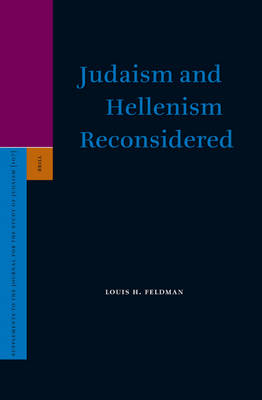Supplements to the Journal for the Study of Judaism
3 primary works
Book 56
Exile: Old Testament, Jewish, and Christian Conceptions
by Bruce D. Chilton and Louis H Feldman
Published 1 October 1997
The exiles of Israel and Judah cast a long shadow over the biblical text and the whole subsequent history of Judaism. Scholars have long recognized the importance of the theme of exile for the Hebrew Bible. Indeed, critical study of the Old Testament has, at least since Wellhausen, been dominated by the Babylonian exile of Judah. In 586 BC, several factors, including the destruction of Jerusalem, the cessation of the sacrificial cult and of the monarchy, and the experience of the exile, began to cause a transformation of Israelite religion which supplied the contours of the larger Judaic framework within which the various forms of Judaism, including the early Christian movement, developed.
Given the importance of the exile to the development of Judaism and Christianity even to the present day, this volume delves into the conceptions of exile which contributed to that development during the formative period.
Given the importance of the exile to the development of Judaism and Christianity even to the present day, this volume delves into the conceptions of exile which contributed to that development during the formative period.
Book 58
The present volume, consisting of 35 studies of various portions of Josephus' Jewish Antiquities, is an attempt to examine the oldest systematic commentary on the historical books of the Bible that has come down to us. It considers how Josephus resolves apparent contradictions, obscurities, and theological and other questions, as well as the historicity of biblical events, which have puzzled classical commentators on the Bible. It attempts to explain cases, notably Ahab, Hezekiah, Jehoiachin, and Zedekiah, where Josephus seems to change the biblical text radically.
Book 107
This book is a collection of 26 previously published articles, with a number of additions and corrections, and with a long new introduction on "The Influence of Hellenism on Jews in Palestine in the Hellenistic Period." The articles deal with such subjects as "Homer and the Near East," "The Septuagint," "Hatred and Attraction to the Jews in Classical Antiquity," "Conversion to Judaism in Classical Antiquity," "Philo, Pseudo-Philo, Josephus, and Theodotus on the Rape of Dinah," "The Influence of the Greek Tragedians on Josephus," "Josephus' Biblical Paraphrase as a Commentary on Contemporary Issues," "Parallel Lives of Two Lawgivers: Josephus' Moses and Plutarch's Lycurgus," "Rabbinic Insights on the Decline and Forthcoming Fall of the Roman Empire."


